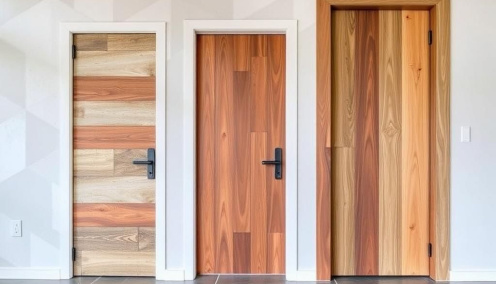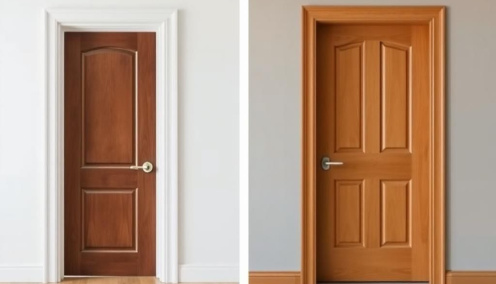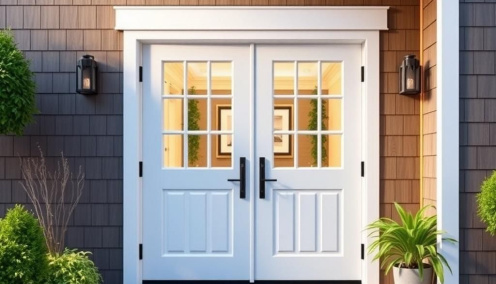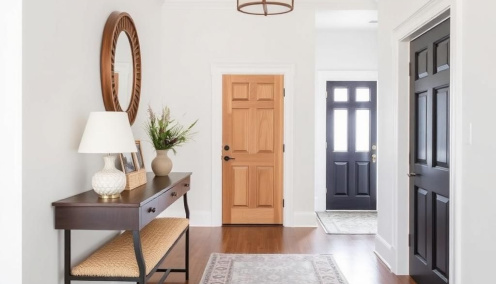Blog
Recycled Materials Transforming Modern Door Design Trends
| Monolith Design
Integrating recycled materials into door design reduces environmental impact without compromising durability or style. High-density recycled wood composites and repurposed metals now outperform traditional options in strength and longevity, making them ideal for Canadian homes facing diverse climates. Selecting doors made from reclaimed hardwood or recycled aluminum can lower carbon footprints by up to 40%, according to recent Life Cycle Assessments.
Designers inc…
Advantages of Open Frame Doors Compared to Solid Door Options
| Monolith Design
Open frame doors provide superior airflow and natural light transmission, making them an excellent choice for interior spaces that require ventilation without sacrificing privacy. Unlike solid doors, their design allows air to circulate freely, reducing the need for additional ventilation systems and helping maintain consistent indoor air quality. This feature is particularly beneficial in humid areas like kitchens or bathrooms, where moisture buildup can cause lon…
Benefits and Rising Popularity of Double Swing Doors
| Monolith Design
Double swing doors provide unmatched flexibility in both residential and commercial spaces. Their ability to open inward and outward without the need for handles or locks simplifies traffic flow, especially in high-traffic areas such as kitchens, dining rooms, and offices. Installing these doors can significantly reduce bottlenecks and improve accessibility for all users.
From a practical standpoint, double swing doors save space by eliminating the need for cleara…
Choosing Durable Safe Doors for Homes with Pets and Children
| Monolith Design
Opt for solid-core doors with reinforced frames to withstand the wear and tear caused by active pets and curious children. Unlike hollow-core doors, these provide superior resistance to scratches, dents, and accidental impacts, extending their lifespan significantly in high-traffic areas.
Materials like hardwood or engineered wood with laminate finishes combine durability with easy maintenance. Surfaces that resist stains and can be wiped clean quickly reduce the…
Improving Hallway Style with Thoughtful Interior Door Choices
| Monolith Design
Selecting the right interior doors can redefine your hallway's atmosphere and functionality. Opt for doors with clean lines and minimalistic hardware to enhance natural light flow, especially in narrow or windowless corridors common in Canadian homes. Frosted glass panels balance privacy and brightness, preventing hallways from feeling cramped or dark.
Material choice directly influences both durability and style. Solid wood doors offer warmth and sound insulation…




